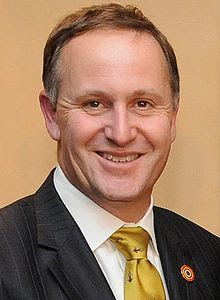Narcissus was a man who many considered foolish. Beautiful, but obsessed by his own image, he is a wise man's cautionary tale not to value your image above its worth. Yet in the modern world of selfies and ever-present screens of our own image, who would be today's wise man - Steve Jobs? Self-obsession is a concept accepted, even encouraged by many. The drive to self-promotion is encouraged - online articles tell us to know our worth, retailers to buy it, and celebrity culture to give everything up to achieve it. Being the person that everyone is looking at or following on Twitter is touted as an enviable position, never mind the stalkers at the gate. According to the modern fable of Kim Kardashian, one can promote oneself to the point of the ridiculous - and others will promote you in turn. Success, riches and a band of admirers can be all yours, for the low price of your own humility.
Western culture, of course, loves this dictum. In the eternal search for a constant happiness that doesn't exist, many people stand to gain: brands, corporates, politicians and the paparazzi (to name a few). The quest for fame can be as small fry as setting up your own YouTube following, and as large as creating your own Richard Branson-esque empire, complete with mirrors at every turn. No longer do you have to worry about the acceptance of others - you can buy it! Everybody loves someone that's always decked out in the latest brands and goes to the latest top places. Tag yourself in and you're away, amassing a largesse store of proof that you are more important than the person walking next to you on the street, who would never get past your phone screen anyway. You are smarter, more stylish, and what's more, you have a better image.
Nobody knows more about a good image than a PR practitioner - and hey, they're right to love it. Image really does sell. Have a brand that's perceived as a bit pansy? Enlist David Beckham as a sponsor. Selling cheap Chinese wares at ridiculous mark-ups? Make the styles the latest on the catwalk. Hawking an electronic gadget? Chuck an apple on the back of it. Biologically programmed to want to fit in (and sometimes be the Chief) in our own pack of Indians, many of us have the feeling that we're always being watched - and no, not just by the proprietors of the GCSB bill. We want to be at the top of the pack, not at the bottom, and if the saintly dollar can take us to the altar we'll pay in plastic-coated paper for the privilege.
Nobody knows more about a good image than a PR practitioner - and hey, they're right to love it. Image really does sell. Have a brand that's perceived as a bit pansy? Enlist David Beckham as a sponsor. Selling cheap Chinese wares at ridiculous mark-ups? Make the styles the latest on the catwalk. Hawking an electronic gadget? Chuck an apple on the back of it. Biologically programmed to want to fit in (and sometimes be the Chief) in our own pack of Indians, many of us have the feeling that we're always being watched - and no, not just by the proprietors of the GCSB bill. We want to be at the top of the pack, not at the bottom, and if the saintly dollar can take us to the altar we'll pay in plastic-coated paper for the privilege.
If you're reading this, identifying, and feeling a bit embarrassed, I'm glad. We SHOULD be embarrassed. Would you crawl on your metaphorical knees for a romantic partner, your child, or your job? Dare I say that these things are more important than the images we slave away at, year after year, soaking up more time than we used to soak up watching TV twenty years ago? We are human because we have been given a beautiful tool, reason, and yet many of us would trade brains for beauty because beauty is revered in our culture. Realistically, how much time do you spend on your Facebook, Instagram, LinkedIn? Could you have completed something truly good for your internal self-image - writing a book, training in a sport, socialising in the real world, in that time?
If there is a message to be taken from this little blogger down the south side of the world, it is this: image is useful, but only that - useful. It is useful in landing a job slightly better than the one garnered from your own talents, useful in attracting the opposite (or same) sex in a pub, useful in meeting and greeting people with a slight dab of lipstick. But that is its limitation - the rest is mere idolatry. Dare I say this from a digital tool, but it is time to lower the screen and look around you. Does everyone look happy in their own self-obsession? If you were truly interacting, wouldn't you be using more than the tips of your fingers to do it? Look and reflect on your self - not your self's reflection.











